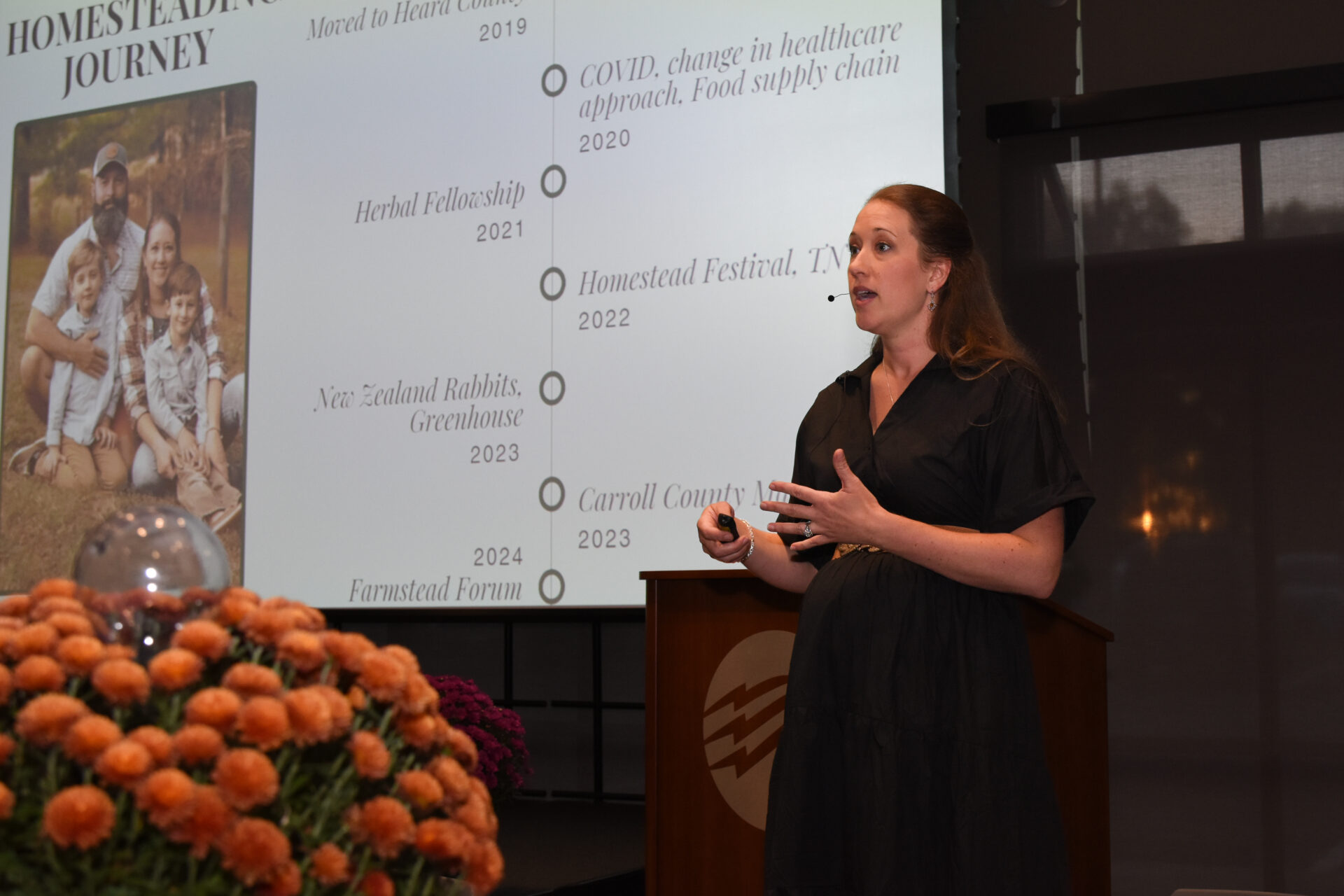In recent years, homesteading has become quite the trend, attracting individuals who want to increase in health and self-sufficiency but have little to no farming experience and minimal land. While a far cry from the romanticized lifestyle portrayed online, homesteading is an attainable way to produce and acquire organic foods and natural medicinal remedies. Carroll EMC welcomed founder of the Farmstead Forum, Emily Faulkner, at its biannual agribusiness seminar in October to explore the topic and share her personal homesteading journey.
Faulkner, a certified nurse practitioner and local to West Georgia, started shifting her mindset from consumer to producer after the coronavirus pandemic caused supply chain shortages and changes to healthcare. Since, she has gradually expanded her homestead to include herbs, vegetables, grapevines and more recently, meat rabbits.
“My best advice to you is to start small,” shared Faulkner. “So if you fail, you fail small and don’t fail big. Maybe start out with the goal to produce 25% of the food you consume annually. Many people get into it thinking they can have total control over their food supply which is really hard to do.”
However, homesteading is more than just producing one’s own food according to Faulkner and big-name homesteader, Joel Salatin. It is a heart desire to restore the home as the focus, and that can be done through simple things like preserving food, conserving water, composting and even repurposing or thrifting.
“It’s whatever you can make at home instead of going out and buying it,” added Faulkner.
As with anything at the mercy of mother nature, homesteading is not an easy feat but well worth the benefits it gives us and returns to the environment. It is a lifestyle that takes time to adjust to and plenty of trial-and-error to get right. To better equip herself, Faulkner completed an herbal fellowship course and master gardener program that not only increased her knowledge but also grew her community.
“Don’t lose heart. Practice makes perfect, so you’re going to make mistakes,” she said. “The good thing is you can always learn from other people. Just get as much information as you can, so that you can set yourself up for success.”
Carroll EMC’s agribusiness seminars are hosted biannually in the spring and fall to engage with local farmers and discuss relevant industry topics. Visit carrollemc.com/agribusiness to learn more about the cooperative’s support of agriculture.

